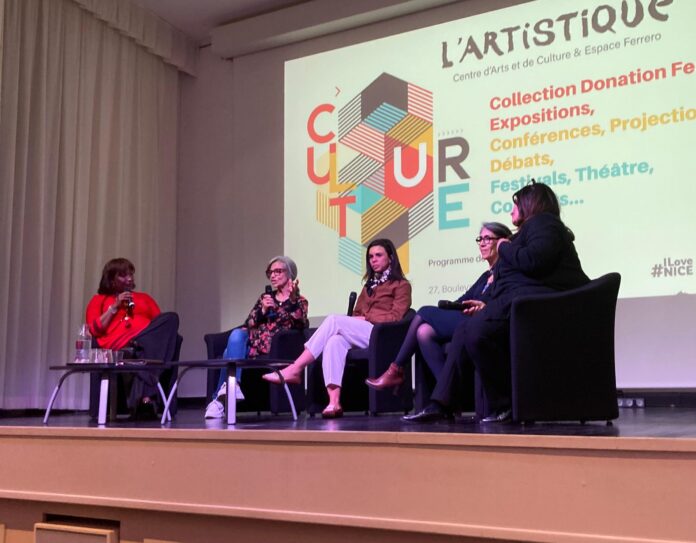Saturday, April 12, 2025, the L’Artistique hall in Nice was filled with emotion and poignant stories during the screening of the documentary Our Mothers, Our Daronnes, directed by Bouchera Azzouz. Through the journeys of four women, this film pays tribute to those who, in the shadows, have shaped our society with their resilience and hunger for freedom.
These “daronnes,” a popular term referring to mothers but also family pillars, embody popular feminism. Far from grand stages, they fought their battles through their daily lives, sometimes silently, but always with determination. The documentary traces their struggles against oppression, their desire to emancipate themselves through art, painting, or cinema, and the winding paths they took to break free from patriarchal norms.
One of them secretly escaped her family home. Another believed that marriage would lead to freedom, only to discover other chains. Each recounts a past where women had to remain silent, to fade away. However, they raised their heads, asserted their right to exist differently, and unwittingly became role models.
A Meeting, Testimonials
The screening was followed by an intense exchange with the audience, attended by the Deputy Prefect, Maty Djouf, and one of the four protagonists of the documentary. The visibly moved spectators spoke up to ask questions, share personal stories, and express how much this film “strongly represented and concerned” them.
This initiative doesn’t just show; it aims to raise awareness. It reminds us that equality is not guaranteed and that remembering past struggles is essential for building the future.
Gradual Emancipation
Our Mothers, Our Daronnes underscores that emancipation can be slow, sometimes invisible, but it leaves indelible marks. Through simple gestures and courageous choices, these women challenged traditions, gained independence, and changed, in their way, the Republic.
“Women are the invisible architects of our society,” asserts the film. And this Saturday in Nice, their voices were finally heard.


